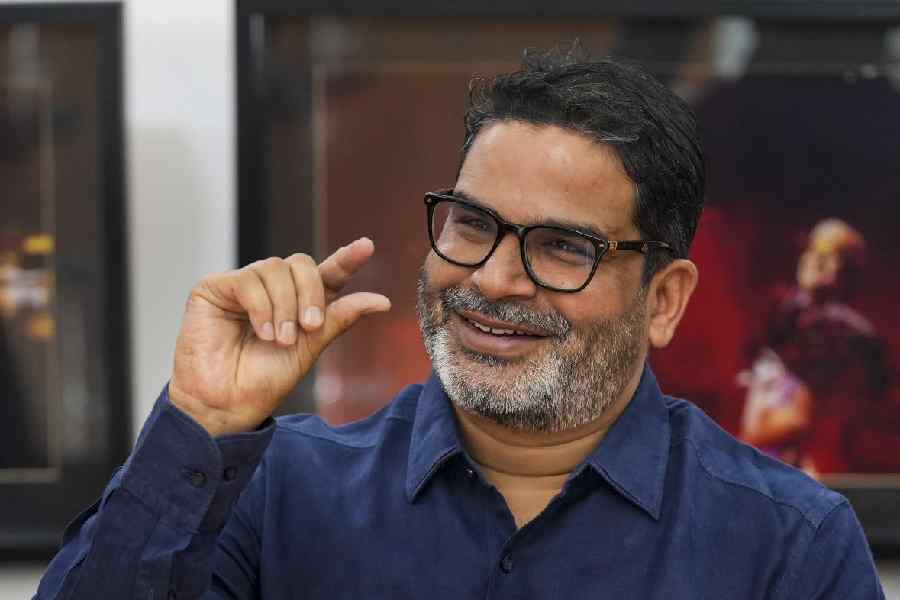
The Great Bargain : Resemblance to Prashant Kishor in Thomas Mann’s 'Doctor Faustus' is purely coincidental
Don't Miss
He used to be a poll strategist, and recently he has turned soothsayer. But this is not about him. Any resemblance to Prashant Kishor in Thomas Mann’s 'Doctor Faustus' is purely coincidental
 |
| Prashant Kishor: File picture |
Upala Sen, TT, 14.04.24 : Doctor Faustus is universally recognised as the man who sold his soul to the devil. What is forgotten most of the time is that he was a man of great learning, be it as Goethe’s Faust or Christopher Marlowe’s. In Thomas Mann’s novel Doctor Faustus, Faust is Adrian Leverkuhn, a “musician of genius”. And yet, in every avatar, as Marlowe’s Chorus says of him, he is “glutted… with learning’s golden gifts”. Faust as Faust, thus “glutted” rejects a range of classical disciplines from philosophy to medicine, from law to theology, only to settle on magic. “A sound magician is a mighty god,” he declared. Leverkuhn sells his soul to the Devil for many uninterrupted years of “artistic brilliance”.
'He cannot choose but err'
Neither Marlowe’s Faust, nor Goethe’s, nor the other characters inspired by either — including Voldemort — become mighty God. They are all inclined towards the Other. Right at the beginning of Goethe’s play, The Lord and Mephistopheles bet on Faust. The former on Faust’s innate goodness. He says, “While Man’s desires and aspirations stir/ He cannot choose but err.” And the latter on his own prowess. Says Mephistopheles, “If unto me full leave you give,/ Gently upon my road to train him.” The many Fausts with their ambitions swing between ludicrous and twisted, a caricature of themselves, full of bombast. Marlowe’s Faust wonders what to do with his superpowers: “Shall I make spirits fetch me what I please…/I’ll have them fly to India for gold/ Ransack the ocean for orient pearl/…I’ll have them fill the public schools with silk…”
The shortest cut
Mann’s Doctor Faustus is considered a modern allegory; the bargain he is talking about is Germany’s with the Nazi demon. Fast forward several decades and in 2011 you have a Russian cinematic version, Alexander Sokurov’s Faust; the last of a series that includes Hitler, Lenin and Emperor Hirohito. Putin helped fund Alexander Sokurov’s Faust. Sokurov later said to the media he never understood why Putin, “who had never been a friend”, had supported his film. Did Putin, who apparently liked the film, fancy himself a Faust or a power way greater? In Marlowe’s play, Faustus asks if it was Lucifer who had sent Mephistopheles to him. He says, “Did not my conjuring speeches raise thee?” Mephistopheles’s reply is telling at many levels. He says, “That was the cause, but hey per accidents;/… the shortest cut for conjuring/Is stoutly to abjure the Trinity,/And pray devoutly to the prince of hell.”


0 Response to "The Great Bargain : Resemblance to Prashant Kishor in Thomas Mann’s 'Doctor Faustus' is purely coincidental"
Post a Comment
Disclaimer Note:
The views expressed in the articles published here are solely those of the author and do not necessarily reflect the official policy, position, or perspective of Kalimpong News or KalimNews. Kalimpong News and KalimNews disclaim all liability for the published or posted articles, news, and information and assume no responsibility for the accuracy or validity of the content.
Kalimpong News is a non-profit online news platform managed by KalimNews and operated under the Kalimpong Press Club.
Comment Policy:
We encourage respectful and constructive discussions. Please ensure decency while commenting and register with your email ID to participate.
Note: only a member of this blog may post a comment.